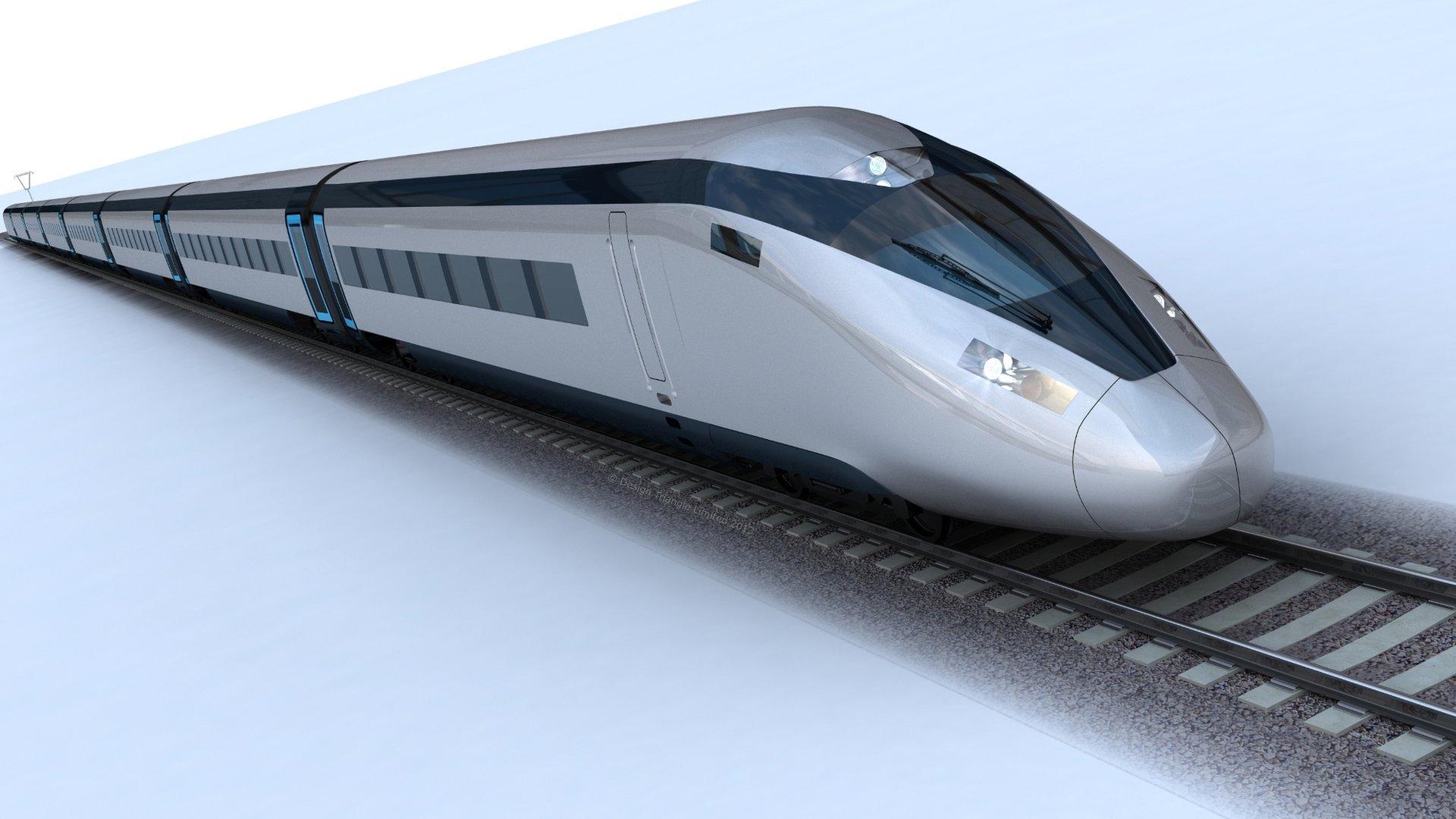Scrap HS2 to boost Welsh rail projects, UKIP says
- Published
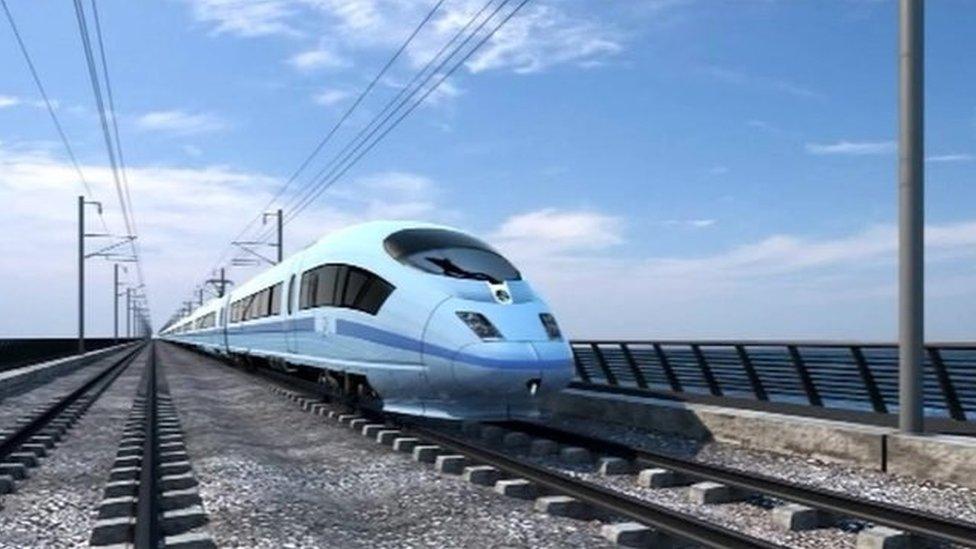
HS2 is set to link London with Birmingham by 2026, reaching Manchester and Leeds by 2033
The HS2 high-speed rail line linking London with northern England should be scrapped to pay for upgrades to the existing network, UKIP Wales has said.
The party led a Senedd debate, external saying its £55.7bn budget should be spent on projects like a South Wales Metro.
Labour and the Welsh Conservatives called for work to ensure HS2 has good connections for passengers in Wales.
Plaid Cymru insisted on extra public funding for Wales under Barnett rules, claiming HS2 only benefits England.
The £55.7bn HS2 project, external aims to create a new high-speed line to link London to Birmingham by 2026, with routes to Manchester and Leeds by 2033.
In July, new Transport Secretary Chris Grayling said he had "no plans to back away" from HS2, despite criticism of the cost and the impact on people living along the route.
UKIP Wales transport spokesman David Rowlands told BBC Wales HS2 was a "a hugely expensive project" which he felt would have a "detrimental effect on the Welsh economy".
He said his party felt the new line could swallow up money better spent on other projects, such as electrification of the south Wales main line and valleys services, a South Wales Metro and improvements in north Wales.
"Because of the huge cost of HS2 - which is rising on a daily basis - it could mean that the UK Government doesn't have the funds to secure a Metro system in Wales," he said.
A Department for Transport spokesman said UK ministers "remain fully committed to delivering HS2, with construction set to start next year".
"HS2 will be a transformative project that will support growth and investment across the country, create extra capacity on the rail network and generate thousands of jobs.
"It will deliver significant benefits to passengers in Wales, which will be linked up to HS2 through the north Wales main line into Crewe," he said.
"Journeys from central Wales to London, Manchester and Leeds will also be quicker."
- Published12 September 2016
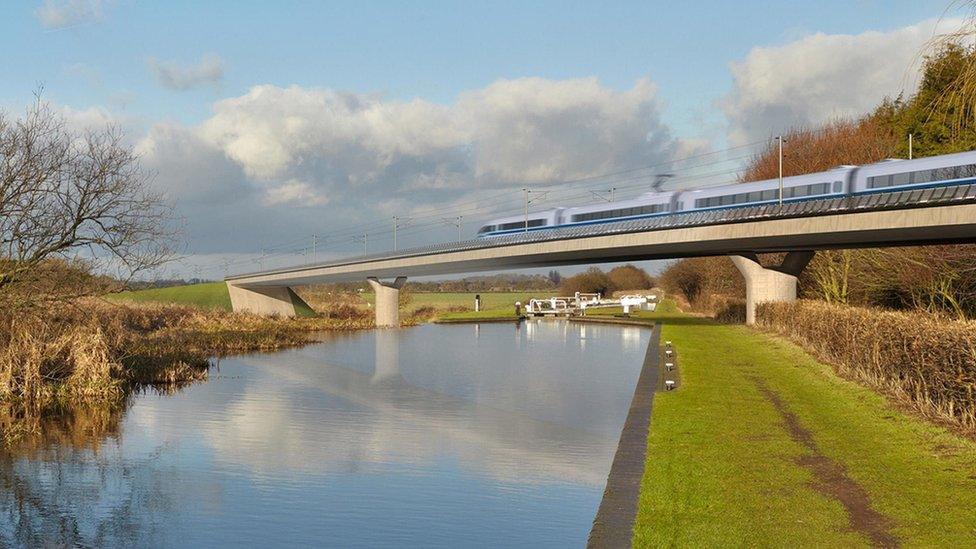
- Published17 July 2016

- Published14 July 2016
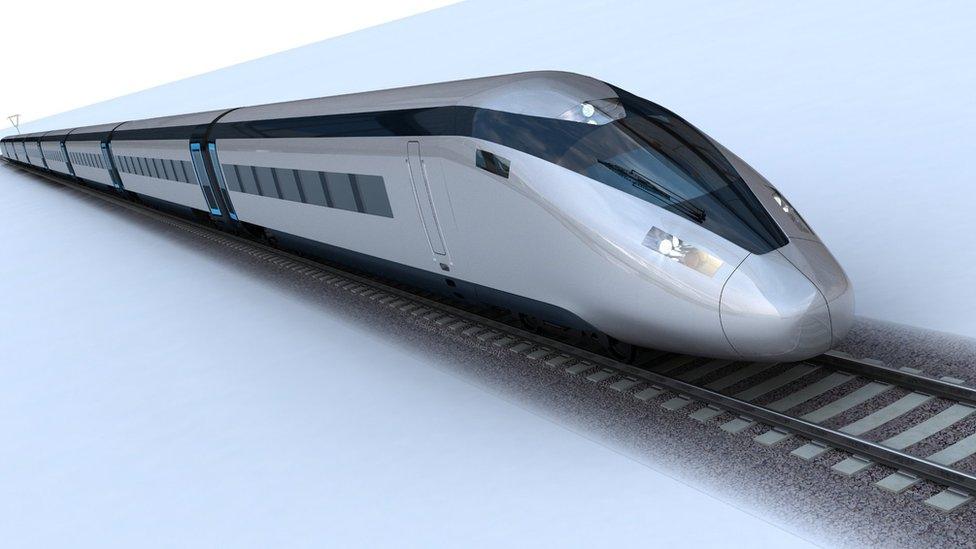
- Published28 June 2016
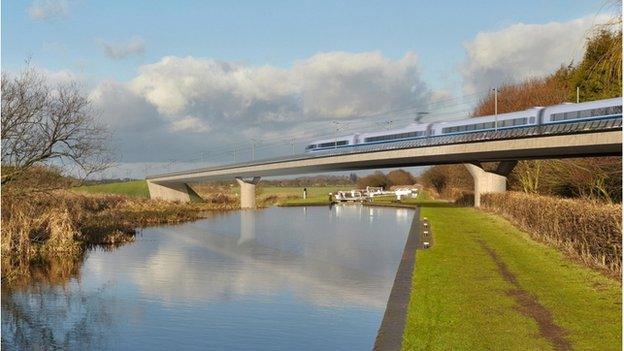
- Published10 December 2015
